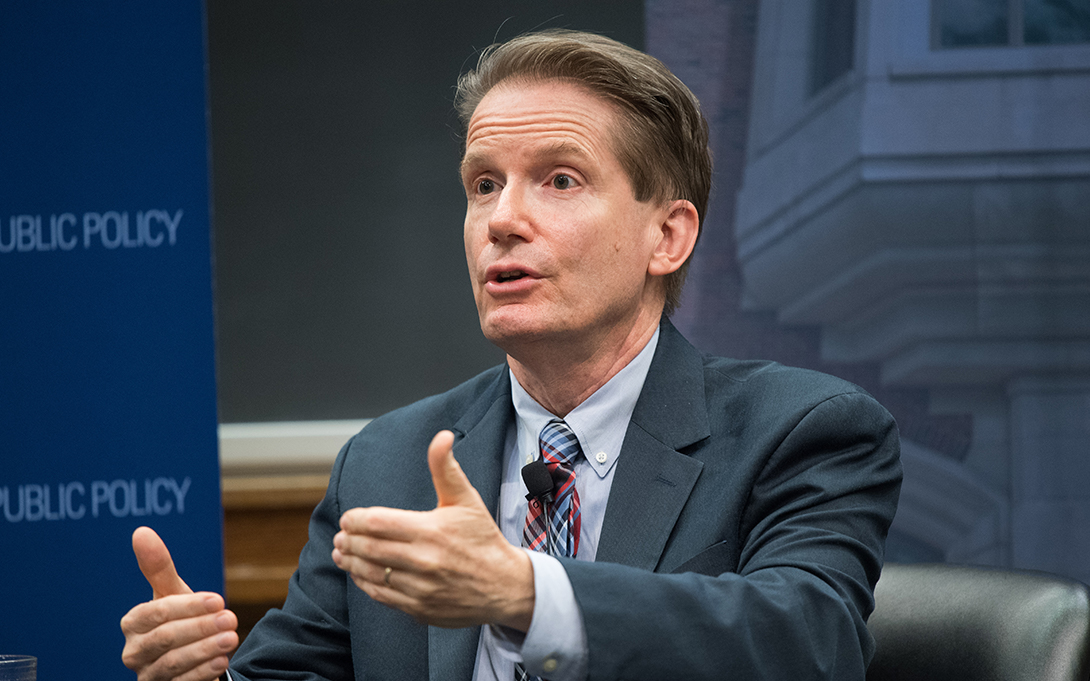
Tensions between Democratic governors and President Trump has been growing for years. Response to the coronavirus pandemic has exacerbated and amplified those conflicts, so that Democratic governors, who have alternately criticized the President and sought his help, represent the strongest opposition to the Trump administration, according to an article in Governing published April 28, 2020.
Ford School professor Barry Rabe argues that the recent spats between President Trump and a number of Democratic governors are part of a growing trend in American federalism. Traditionally, presidential resistance from the party out of power came from Congress.
“In some ways, the opposition to the president becomes states from the other party,” Rabe says. “Certainly during the Obama and Trump presidencies, states have been looking for ways to chart their own course as much as possible. In many cases, that involves directly challenging presidents.”
During the Obama presidency, Republicans controlled a majority of states, but in recent years Democrats that power has shifted. Democrats now control both the governorship and the legislature in 15 states.
Governors’ responses to the coronavirus have driven up their individual approval ratings, and they have formed regional alliances, including both Democrats and Republicans, in the Midwest, Northeast, and the West.
The regional alliances between governors on coronavirus response may not endure, but it speaks to their growing recognition that they can band together, whether on a regional or partisan basis, to address problems and points of mutual concern.
“What I think is likely is that we see governors coming out of the coronavirus feeling their oats and testing their powers,” Rabe said. “Many of them have seen skyrocketing approval and popularity.”
Rabe is co-author of a forthcoming book on federalism under Trump and Obama.
For the full article in Governing, click here.
Barry Rabe is the J. Ira and Nicki Harris Family Professor of Public Policy at the Ford School. He is also the Arthur Thurnau Professor of Environmental Policy, with courtesy appointments in the Program in the Environment, the Department of Political Science, and the School for Environment and Sustainability. A non-resident senior fellow at the Brookings Institution, Barry directed the Ford School's Center for Local, State, and Urban Policy (CLOSUP) from 2012-2019 and was a visiting fellow at the Woodrow Wilson International Center for Scholars in 2015. His research examines climate and energy politics, and his most recent book, Can We Price Carbon? (MIT Press) was released in 2018. He has received four awards for his research from the American Political Science Association, including the 2017 Martha Derthick Award for long-standing impact in the fields of federalism and intergovernmental relations. In recent years, Barry has chaired the Assumable Waters Committee of the U.S. Environmental Protection Agency and has served on recent National Academy of Public Administration panels examining the Departments of Commerce and Interior as well as the Oklahoma Corporation Commission. He is currently a member of the U-M Carbon Neutrality Commission.
More news from the Ford School